
1 Cape Blanco stonecrop
SEDUM SPATHULIFOLIUM, ZONES 5 TO 9
Cape Blanco's luminous, silver-blue foliage lights up any combination in the garden or container arrangements. This is a cultivar of a native species, offering up tiny yellow flowers in summer. As a ground cover, it'll stretch up to 2 feet.
Why we love it:
Truly a standout with its coloration, the shimmery leaves can play checkers in a landscape with black mondo grass (Ophiopogon planiscapus 'Nigrescens').
2 Petite Bicolor crassula
CRASSULA, ZONES 9 TO 11
With the tiniest of leaves, this charming option shines in a mixed container or on its own. Move it indoors in winter and grow as a houseplant where not hardy. Watch for bees and butterflies to stop by in droves during summer and early fall when star-shaped pink flowers appear.
Why we love it:
Often referred to as Little Missy sedum, this pick's leaves are edged in cream and flushed pink.
WARM AND DRY Like other succulents, sedums thrive in poor soil and can even withstand drought once established. For most, the preferred growing conditions are gravelly, well-draining soil in full sun. Plant where rain or moisture won't puddle.
3 Weihenstephaner Gold orange stonecrop
PHEDIMUS KAMTSCHATICUM VAR. FLORIFERUM, ZONES 3 TO 8
This plant sports 6-inch-tall olive green foliage that beautifully complements its pink stems and wildlifefriendly yellow flowers. Its trailing habit, up to 16 inches, makes it perfect to use in hanging baskets or as a ground cover. It also tolerates deer and drought.
Why we love it: Abundant blooms appear from June to August, then deliver a bonus of tiny reddish fruit.
4 Evergreen orpine
This story is from the {{IssueName}} edition of {{MagazineName}}.
Start your 7-day Magzter GOLD free trial to access thousands of curated premium stories, and 9,000+ magazines and newspapers.
Already a subscriber ? Sign In
This story is from the {{IssueName}} edition of {{MagazineName}}.
Start your 7-day Magzter GOLD free trial to access thousands of curated premium stories, and 9,000+ magazines and newspapers.
Already a subscriber? Sign In
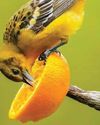
Sense or Nonsense? - Why some birds can taste and smell - but others can't
Does a porcelain berry taste like a blueberry to a gray catbird? Does a block of lard smell like frying bacon to a northern flicker? The short answer is no. While some avian species do have a well-adapted sense of taste or smell, they can't distinguish between flavors and odors the way humans can. They're not picking up every ingredient in the suet you put out, says José Ramírez-Garofalo, an ornithology researcher at Rutgers University in New Jersey and the director of Freshkills Biological Station in Staten Island, New York.
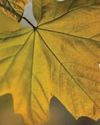
Maple Mania - Amazing facts about this fall foliage mainstay
Amazing facts about this fall foliage mainstay
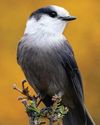
Food-Focused and Fierce - Meet Canada jays and learn why they eat almost anything they can find
Even if you haven't heard of Canada jays, you've heard of their relatives. Members of the corvid family, they belong to the same group as American crows, blackbilled magpies, and jays including blue, Steller's and scrub. "Unlike many of the other jays, a Canada jay doesn't have a crest of any kind; it just has a rounded head," says Dale Gentry, director of conservation for Audubon Upper Mississippi River.In 2018, the Canada jay's name was changed from gray jay, but Dale thinks the former adjective was fitting. "Most of its body is shades of gray with some white," he says. "There are different subspecies that have different physical traits, but most of them have some lighter coloring on their foreheads, upper breasts and throats, each with a darker streak that starts at each eye and goes back."
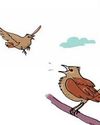
IN GOOD COMPANY
BIRDS OF A FEATHER MAY FLOCK TOGETHER, but what about other collectives of critters-and what do you call them when they do?
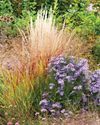
YOUR OWN Perfect Prairie
Learn how to cultivate an oasis of grassland flora in your backyard

ON THE MOVE
Birds approach the challenges of migration in surprising ways. Learn about how they walk, swim or take the scenic route during their travels.
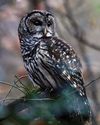
Autumn Wonders
Fall colors offer befitting backdrops for these stunning reader photos
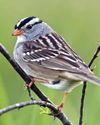
Sparrow Look-Alikes
Distinct sounds help separate these similar species
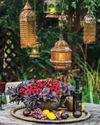
Embracing the Darkness
From black plants to moody decor, Gothic garden elements can offer a unique outlet to express your dark side
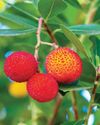
Red-Hot Plants
Scarlet-hued berries add a pop of color to any garden